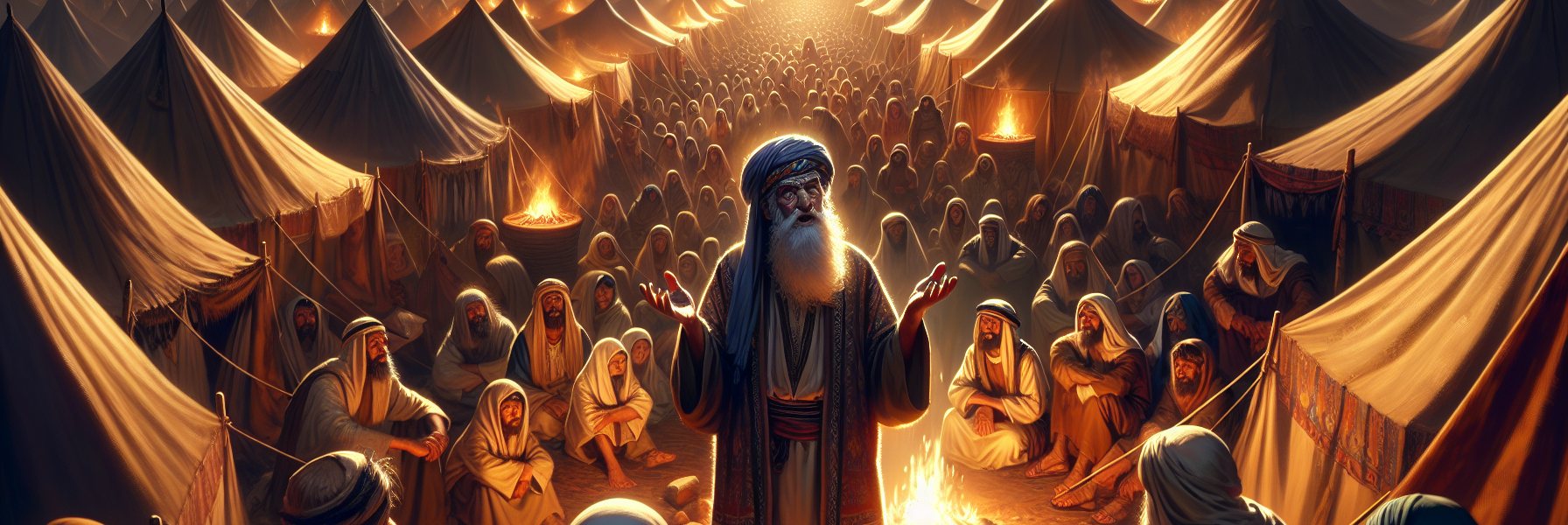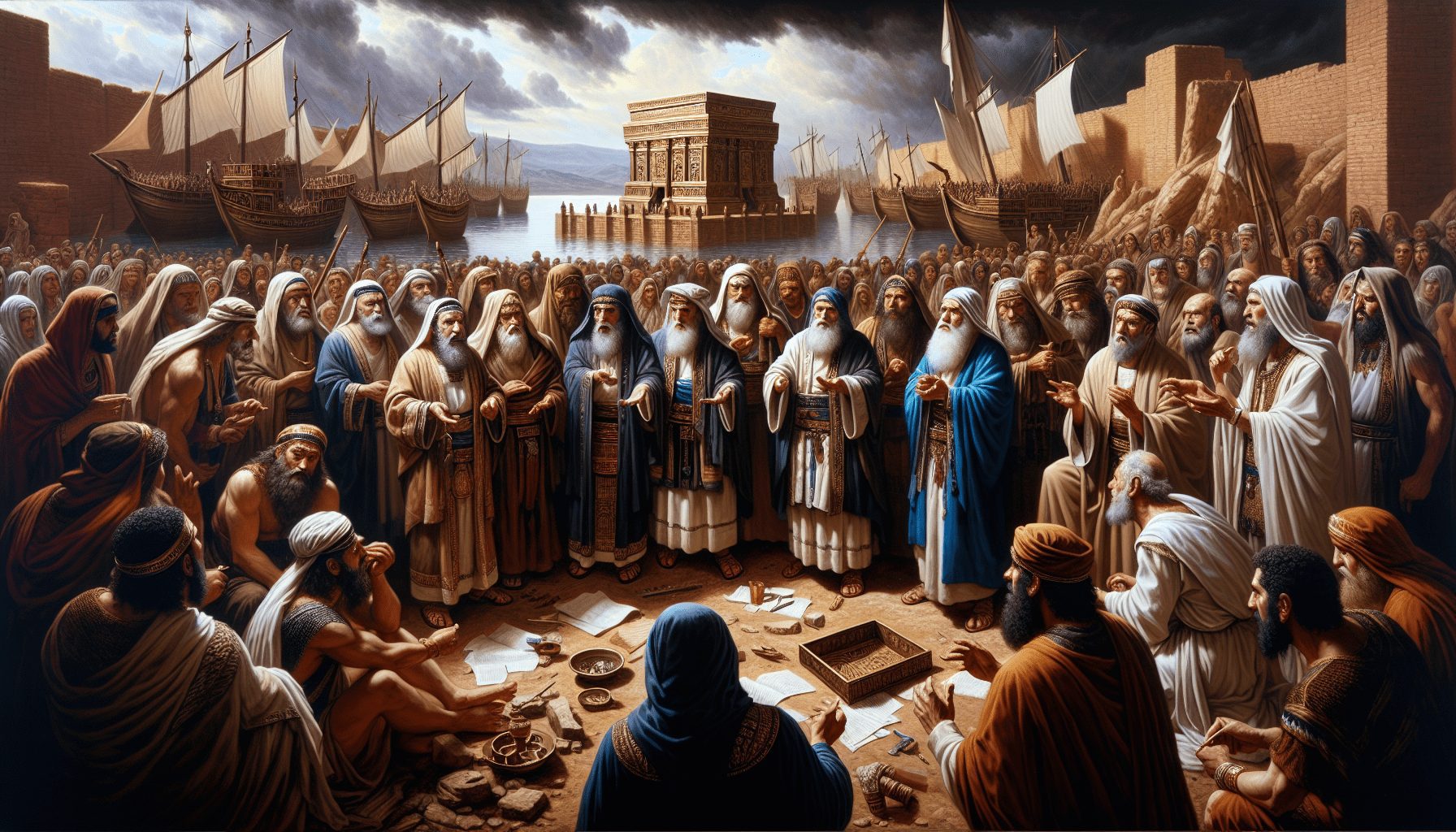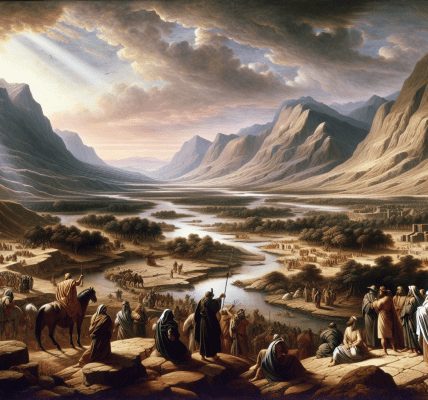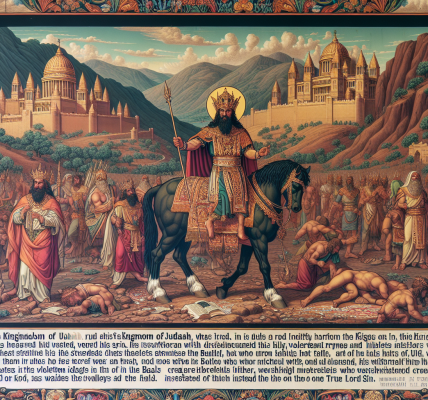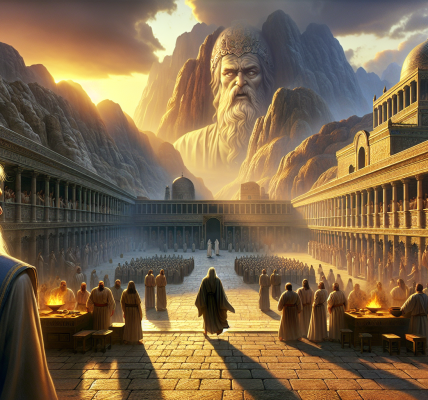**The Song of Remembrance: A Story of God’s Faithfulness and Israel’s Rebellion**
The sun hung low over the tents of Israel, casting long shadows across the camp as the elders gathered the people near the flickering light of the evening fires. The air was thick with the scent of roasting lamb and the murmur of voices. An old man, his beard white with age and his eyes alight with wisdom, stood before them. He lifted his hands, and the crowd fell silent.
“My people,” he began, his voice steady and strong, “listen to my teaching. I will open my mouth in parables; I will utter hidden things, things from of old—things we have heard and known, what our fathers have told us.”
The children edged closer, their eyes wide. The adults bowed their heads, remembering. The old man’s words were not his own—they were the song of their history, the echo of God’s mighty deeds and their fathers’ failures.
**The Wonders of Egypt and the Red Sea**
“Long ago,” the elder continued, “our fathers dwelt in the land of Egypt, slaves under Pharaoh’s cruel hand. They cried out, and the Lord heard them. He sent plagues upon Egypt—water turned to blood, frogs that covered the land, darkness so thick it could be felt. Yet Pharaoh’s heart was hard, and he would not let us go.”
A young boy gasped. “But God delivered us, didn’t He?”
The elder smiled. “Yes, child. With a mighty hand and outstretched arm, He led us out. By day, a pillar of cloud; by night, a pillar of fire. And when Pharaoh’s army pursued us, trapped between the sea and his chariots, the Lord split the Red Sea in two! Walls of water stood like mountains, and we passed through on dry ground. But when the enemy followed, the waves swallowed them whole.”
The people murmured in awe, some clapping their hands, others whispering prayers of thanks.
**The Rebellion in the Wilderness**
“But,” the elder’s voice grew heavy, “our fathers soon forgot His wonders.”
The crowd stilled.
“In the desert, they tested God, demanding food for their hunger. ‘Can He spread a table in the wilderness?’ they grumbled. Yet the Lord rained down manna—bread from heaven—and sent flocks of quail to satisfy their craving. But even as they ate, their hearts were faithless. They doubted Him again at Meribah, crying out for water, saying, ‘Is the Lord among us or not?’”
An old woman in the crowd wiped her eyes. She remembered her parents speaking of those days—how they had seen miracles yet still rebelled.
**The Sin of Idolatry and God’s Judgment**
The elder’s face darkened. “Worse still, when Moses lingered on the mountain, they grew impatient. ‘Make us gods to lead us,’ they demanded. And so they fashioned a calf of gold, bowing before it, feasting in revelry while the Lord’s anger burned against them.”
A shiver ran through the crowd. They knew this story too well.
“God would have destroyed them had Moses not stood in the breach. Yet even after His mercy, they persisted in sin. They did not believe His promise of the land flowing with milk and honey. They despised the pleasant land, refusing to enter. So the Lord swore that generation would perish in the wilderness—all but Joshua and Caleb, who trusted in Him.”
**God’s Mercy Despite Their Failures**
The elder paused, his voice softening. “Yet He was merciful. When their children entered the land, He drove out nations before them. He gave them vineyards they did not plant and cities they did not build. He raised up judges to deliver them from their enemies. But time and again, they turned away, chasing after foreign gods, provoking Him to anger.”
A young man clenched his fists. “Why were they so stubborn?”
The elder sighed. “Because they did not set their hearts on Him. They forgot His covenant, His miracles. They were like a deceitful bow—unreliable, failing when most needed.”
**The Choosing of David and the Promise of a Shepherd**
Then the elder’s voice lifted with hope. “But the Lord, in His faithfulness, chose Judah, Mount Zion which He loved. And from there, He raised up David, a shepherd boy, to be king over His people. A man after God’s own heart, who would shepherd Israel with integrity and skill.”
The people nodded. They knew of David’s psalms, his victories, his heart for God.
“And so,” the elder concluded, “we must remember. Remember His deeds, His wonders. Teach them to our children, that the next generation might know—even children yet unborn—and arise to tell their children, so that they might set their hope in God and not forget His works, but keep His commandments.”
The fire crackled in the silence. Then, one by one, voices rose in song—the song of their history, the song of God’s faithfulness despite their failures. And under the starlit sky, the promise lingered:
*The Lord is good. His mercy endures forever.*
And so they would tell the story again and again, lest they forget.
